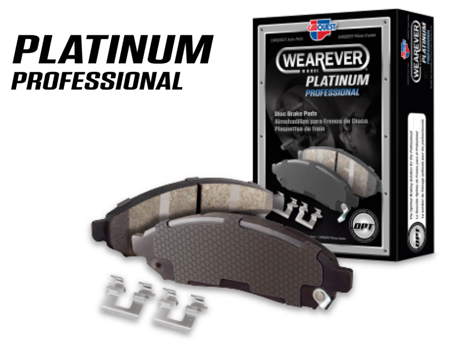Menu
Subscribe to our mailing list

Every vehicle requires some maintenance and eventually some parts need to be replaced. Your car consists of several components that don’t last forever. From battery to wheels, these crucial parts get worn out and need to be replaced to ensure your safety on the road. One such critical component that suffers wear and tear and needs replacement is brake pads. Like any other part, brake pads also get damaged as they keep creating friction to stop your car. Everyone knows how significant role brakes play. A malfunctioning brake not only harms your car but could also create a life-threatening situation. So, it’s in the interest of every driver, passenger, and fellow motorist to get brakes checked periodically and replace the pad or rotor when needed.
When It’s Time to Replace Brake Pads?
You know the importance of brake pads but might be wondering when should you replace them. In an average vehicle, brake pads need replacement after every 25,000 to 65,000 miles. Likewise, rotors should be checked and replaced once the vehicle reaches 30,000 to 70,000 miles. This is an average range but the exact number of miles typically depends on factors like driving habits, weather conditions, etc. The new models have brake-pad sensors that show an indicator light on the dashboard informing the driver of worn brake pads. If your car doesn’t have this feature, brake pads would start showing some signs that indicate they are nearing the end of life. Identifying these common warning signs can help you get the car checked and make necessary repairs or replacements. So, let’s check out common signs revealing that it’s time for new pads and rotors.
Before the brake pad fails, it starts making a squeaking or squealing sound. This is the first sign that means your car’s brake pads need attention. Squealing could be caused when pads get excessively worn down. Sometimes, there’s nothing to worry about squeaky noise as it can be due to some weather conditions like rain. But if the weather is normal and the brakes continue to make this squeaky sound, it indicates there may be a problem. If the problem persists, make sure to get your car and brakes checked by a professional.
To get an idea of the brake pad’s condition, it’s best to visually inspect them and find signs of wear. Visual analysis can help you figure out whether it’s time to replace your brake pads. You need to look between the spokes on your wheels to locate the brake pad on the rotor. When brake pads get worn out, they become thin. So, if they appear to be less than a ¼ inch or 6.4 mm thick, it’s time to buy new brake pads.
As discussed above, if you hear any unusual sound while applying pressure to the brake pedal, it means a problem. The brake pads that are designed with in-built metal wear indicators start making a loud noise to alert drivers about worn-out pads. So, if you hear a deep grinding sound when pressing the brake, it’s time to replace the pads. Ignoring this sign could lead to more damage resulting in more costly repairs and replacements beyond just brake pads.
Another sign that indicates it might be time to replace your brake pads is a vibrating brake pedal. Brakes should work smoothly but when rotors and pads get warped, you might experience some issues in stopping the car. If you notice a vibration or feel unsteady as you press down, get your car checked to avoid any further damage or a potential accident.
DAVENPORTS Auto Parts & Supplies has proudly been servicing the Orangeville, Bradford, Shelburne and surrounding area since 1972! If you need automotive parts, batteries, lubricants, filters, brakes, chassis, paint & body supplies, tools & equipment, industrial supplies…plus much more:
We Have What You Are Looking For!